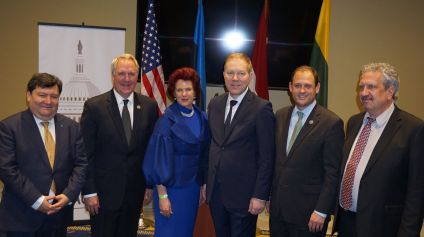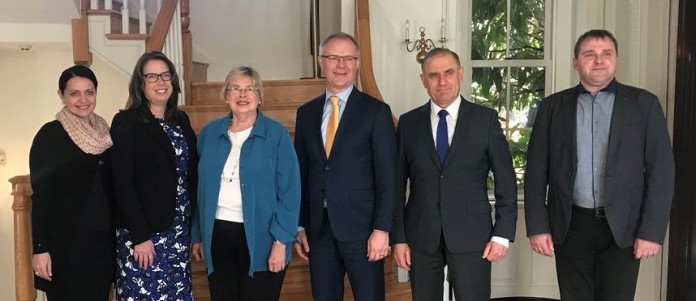Last month, an event titled “A Concert for Unity” was held at the Washington National Cathedral. It was billed as an invitation-only affair presented in cooperation with the Embassy of the Russian Federation. The concert announcement listed sponsors including the John F. Kennedy Center for the Performing Arts and the Wilson Center’s Kennan Institute, among other, less prominent non-profit organizations whose mission statements assert support for the arts, Russian culture, democracy and/or religious freedom. The full announcement is available at wilsoncenter.org. 
The concert caught the attention of the Central and East European Coalition (CEEC) due to the controversial background of the artists listed. Two of the featured performers are known agents of Putin’s campaign of economic and cultural influence to promote Putin’s Russia and normalize relations with the Kremlin. Conductor Valeri Gergiev and pianist Denis Matsuev are both on record endorsing Russia’s invasion of Ukraine and occupation of Crimea, and performed in Syria while Russian warplanes were bombing Aleppo. Gergiev also performed in Georgia days after the 2008 Russian invasion, effectively endorsing ethnic cleansing of Georgians.
The CEEC considered the event an affront to the values of its member organizations and was surprised that the Kennan Institute and Kennedy Center would lend their names in support. Washington Post reporting indicated that the event was funded by a DC socialite who has a history of promoting cultural understanding between the U.S. and Russia, and that the Kennedy Center supported the event in name only. Even so, the CEEC has pursued the matter further by writing to three institutions – the Kennan Institute, the Kennedy Center and the National Cathedral – expressing dismay and requesting more information from the leader of each regarding their rationale for backing the event.
While the CEEC understands that the aim of the event may have been to keep politics and cultural pursuits separate, this message would have been more effective if the event’s benefactor and featured artists didn’t have clear political ties. These artists and the source of the event’s funding certainly did according to the Washington Post article linked above.
The CEEC hopes that the institutions in question will respond to its letters and will publish any pertinent updates as they are received. The organization was established in 1994 to coordinate the efforts of ethnic organizations whose members continue to maintain strong cultural, economic, and political ties to the countries of central and eastern Europe. It represents Americans of Armenian, Belarusian, Bulgarian, Czech, Estonian, Georgian, Hungarian, Latvian, Lithuanian, Polish, Romanian, Slovak, and Ukrainian descent. Its member organizations, including the Estonian American National Council, cooperate in calling attention to issues of mutual concern, especially regarding United States policy toward Central and East Europe. Please see ceecoalition.us for more information.




